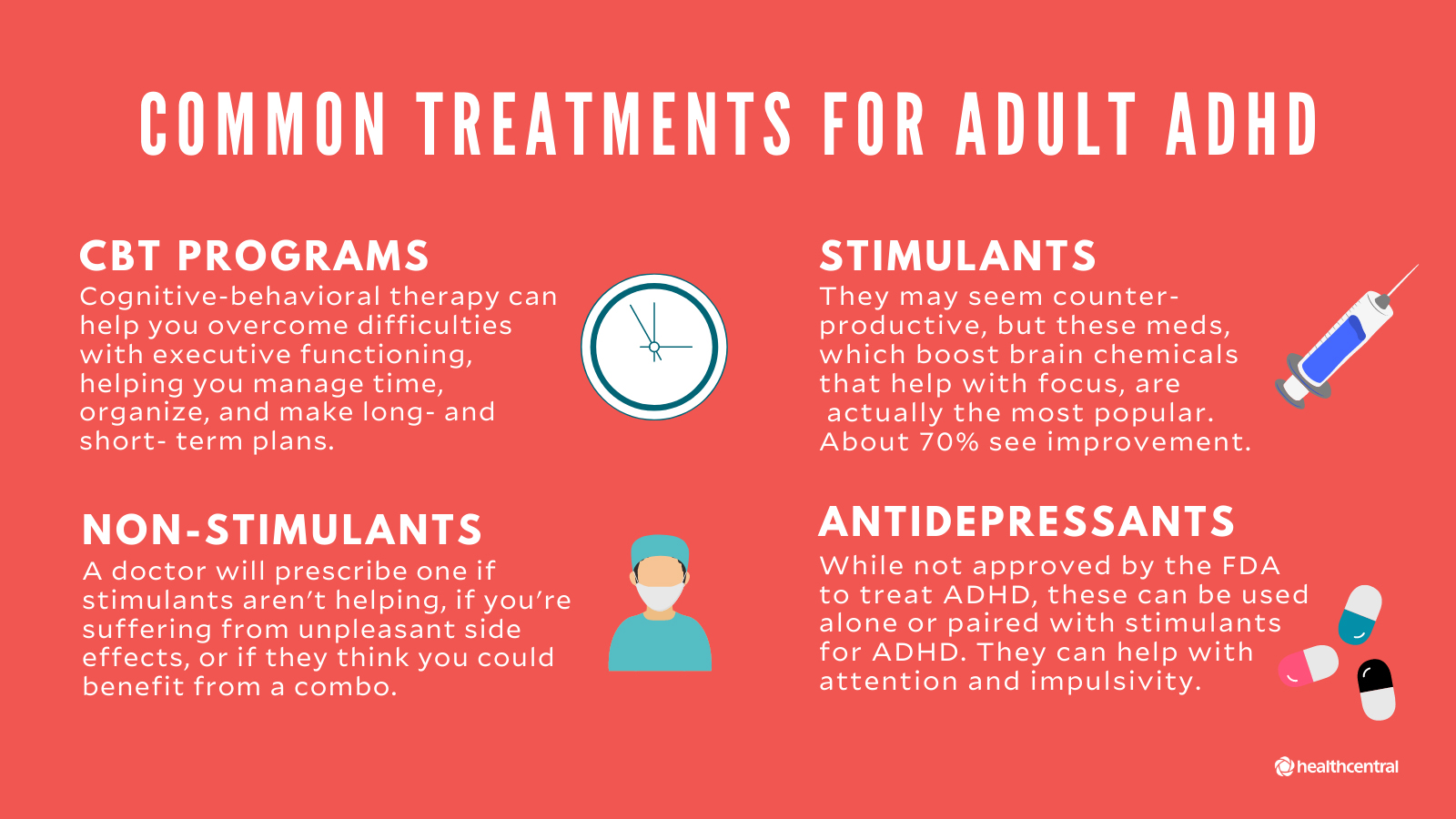Your Overview to Finding the Right ADHD Treatment for Long-term Outcomes
Browsing the intricacies of ADHD therapy requires a nuanced understanding of both the condition and the myriad options readily available for effective management. It is necessary to recognize that what help one person might not always produce the same outcomes for an additional. Hence, a tailored approach-- including specialist guidance, medicine, behavior methods, and lifestyle adjustments-- becomes vital. The journey toward recognizing the most ideal therapy strategy can be laden with challenges. What are the essential factors that affect effective outcomes, and how can people ensure they are on the appropriate course?
Comprehending ADHD and Its Influence

In grownups, ADHD can cause difficulties in work environment settings, affecting performance, time administration, and interpersonal relationships. Usually, undiagnosed or incorrectly handled ADHD can contribute to co-occurring mental wellness concerns, such as anxiety and anxiety, additional complicating a person's overall health.
The societal understanding of ADHD can vary, bring about preconception and misconception, which might impede individuals from seeking assistance. As awareness grows, it is essential to foster an atmosphere that advertises understanding and support for those affected by ADHD, highlighting the demand for accurate medical diagnosis and customized methods to mitigate its influence on day-to-day life.
Introduction of Therapy Alternatives
An extensive technique to treating ADHD includes a range of alternatives tailored to the person's special demands. These options can generally be classified into behavior interventions, psychoeducation, and way of living modifications, together with pharmacological therapies that might be checked out later.
Behavior treatments, such as cognitive-behavioral treatment (CBT), focus on modifying specific habits and creating coping strategies to take care of symptoms successfully. Psychoeducation plays a vital duty in empowering both individuals and their households by supplying details concerning ADHD, its challenges, and reliable approaches for assistance.
Lifestyle alterations can substantially affect ADHD management. Normal exercise, a balanced diet plan, and ample sleep add to overall wellness and symptom control. Mindfulness methods and relaxation methods can likewise enhance emphasis and reduce impulsivity.
Support system and family members treatment can foster a sense of community and understanding, helping individuals really feel less isolated in their experiences. Each therapy alternative must be taken into consideration together with the person's choices and scenarios, guaranteeing an alternative strategy that promotes long-term success. Ultimately, the objective is to create a personalized therapy strategy that attends to the particular obstacles related to ADHD while enhancing general lifestyle.
Medication: Pros and Cons
Drug plays a critical function in the therapy of ADHD, with many options readily available that can substantially reduce symptoms for lots of individuals. Energizers, such as methylphenidate and amphetamines, are typically prescribed and have shown efficiency in improving focus, minimizing impulsivity, and boosting total habits. These drugs Read Full Report function by increasing dopamine and norepinephrine degrees in the brain, which are typically dysregulated in those with ADHD.
However, making use of drug is not without its obstacles. Some individuals may experience side effects, consisting of insomnia, reduced appetite, or raised stress and anxiety. Locating the ideal dosage can be a trial-and-error procedure, requiring close surveillance by medical care professionals. Furthermore, not all individuals respond to energizer medications, leading some to check out non-stimulant alternatives, which might have a delayed onset of action or various negative effects.
It is crucial for people and their households to weigh these pros and cons thoroughly. Stabilizing the advantages of signs and symptom management versus prospective negative effects is important for accomplishing optimal treatment end results. Partnership with healthcare carriers can help with informed choices, making sure that medicine becomes part of a thorough ADHD management plan.
Behavior Modification Techniques

One generally utilized approach is Cognitive Behavior Therapy (CBT), which helps people recognize and transform negative thought patterns that add to ADHD-related challenges. Therapist for ADHD. Through CBT, clients learn to establish sensible objectives, take care of time efficiently, and develop business systems
Another efficient strategy is Moms navigate to these guys and dad Management Training (PMT), which enlightens moms and dads on just how to enhance positive actions and minimize unfavorable ones via constant technique and communication strategies. This strategy promotes a helpful home environment that motivates behavior improvements.
Social abilities training is likewise integral, helping people with ADHD navigate social communications more properly. Role-playing and modeling ideal behaviors can enhance social skills and decrease anxiety in social scenarios.
Lifestyle Modifications for Better Administration
Exactly how can lifestyle adjustments dramatically improve the monitoring of ADHD symptoms? Carrying out tactical way of life adjustments can bring about substantial improvements in emphasis, organization, and psychological guideline for extreme depression people with ADHD.
To start with, developing a structured everyday routine aids in creating predictability, which can reduce feelings of bewilder. Regular routines for meals, study, and rest can enhance everyday functioning.
Integrating regular physical activity is also essential, as workout has been shown to enhance dopamine levels, improving interest and inspiration (Therapist for ADHD). Intending for at least thirty minutes of modest workout most days can be valuable
Nourishment plays a pivotal function as well. A balanced diet rich in omega-3 fats, whole grains, and healthy protein can support cognitive function. Restricting refined sugars and caffeine may decrease signs and symptoms, as these can result in power crashes and irritation.
Final Thought
To conclude, locating the ideal ADHD treatment necessitates a multifaceted technique that considers individual demands and preferences. A mix of medicine, behavior modification, and way of living alterations can significantly improve sign management and overall health. Participating in psychoeducation and establishing organized routines better supports efficient treatment techniques. Partnership with medical care specialists and open communication with assistance networks are necessary elements in browsing the complexities of ADHD administration, inevitably resulting in lasting outcomes and improved high quality of life.